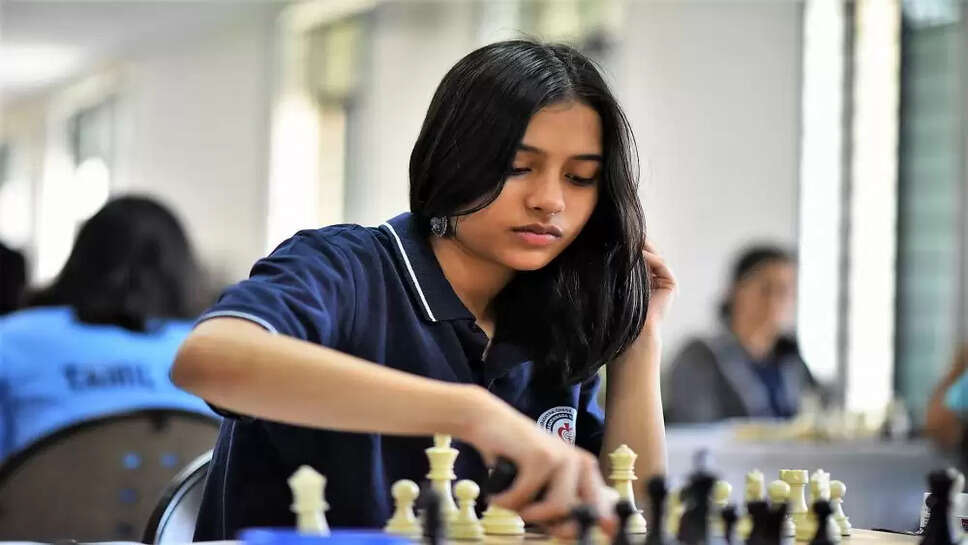Powerhouse Indian Women Rattle World Chess at FIDE Women’s World Cup

In a compelling display of talent and tenacity, India’s women chess contingent has captured global attention at the FIDE Women’s World Cup in Batumi, Georgia. Anchored by the stalwart Koneru Humpy and the rising star Divya Deshmukh, the Indian team has created a storm, with several players booking their spots in the coveted last-16 stage. The quake-like impact of this performance is gaining traction in elite chess circles, heralding a seismic shift in the international women's chess landscape.
1. Humpy Reigns Supreme: A Model of Experience and Finesse
Koneru Humpy – India’s first-ever female Grandmaster and a fixture in the top 10 of global rankings – once again proved her mettle in Batumi. After a balanced start in the classical segment, she delivered a clinical, 44-move victory against Poland’s IM Klaudia Kulon using precise strategic maneuvering and an exceptional endgame acumen. With this win, Humpy emphatically sealed her place in the round of 16, showcasing her veteran flair and mental stamina in high-pressure scenarios. Her next challenge is set to be formidable, yet the confidence she brings forward is palpable.
2. Divya Deshmukh: From Junior Whiz to World Cup Contender
At just 19 years old, Divya Deshmukh has emerged as the face of India’s next generation. Crowned world junior champion, she entered Batumi with momentum and did not disappoint. After a dominant first-round victory using the Richter–Rauzer Sicilian, she drew her second game to advance to Round 3, where she again demonstrated resilience. A win, followed by a key draw, ensured her progress into the pre-quarterfinals. The icing on her performance came when she outplayed Serbia’s IM Teodora Injac to seal a last-16 berth. Divya now prepares to face China’s GM Zhu Jiner, a top-10 global player – a true test of her ascent.
3. Harika, Vaishali, Vantika: A Unified Surge
India’s prowess isn’t limited to just two players – a trio of outstanding performers is fighting their way through tie-breaks with steadfast determination:
-
Dronavalli Harika, the seasoned GM, drew both classical games against Greece’s Stavroula Tsolakidou and will now contest rapid tie-breakers.
-
Vaishali Rameshbabu, fresh off her recent Grandmaster achievement, clashed with USA’s Carissa Yip in a nail-biting classical and secured swift victories in rapid tie-break games, emerging triumphant under pressure.
-
Vantika Agrawal stunned former world champion Anna Ushenina in the second round, then battled Kateryna Lagno to a classical draw. She now enters tie-break rounds seeking to ride momentum into Round 4.
This depth of talent is rare – four Indian women pushing into the final 16 is a historic moment, especially considering only China rivals this representation.
4. An Earthquake Analogy Fits: India’s Chess Landscape Shifts
Analysts are likening this wave of Indian excellence to a chess “earthquake.” Just as the men’s side – led by Gukesh, Praggnanandhaa and Arjun Erigaisi – stunned the world, the women are now following suit. At the 2024 Chess Olympiad, Indian women claimed gold, with both Divya and Vantika winning individual board medals. Batumi now serves as another stage where the collective Indian force is shaking the very foundations of women’s chess dominance, traditionally held by China.
5. Stakes Beyond National Pride
The World Cup carries high stakes: a berth in the top three grants entry to the prestigious Women’s Candidates Tournament, the gateway to a world championship challenge. Humpy and Divya, both already candidates qualifiers from past efforts, are aiming to cement their place through this pathway again. For Harika, Vaishali and Vantika, advancing through tie-breaks is more than progress – it’s a statement of intent: India is not just present; it seeks to lead.
6. Breaking Norms with Youth and Strategy
What’s striking is the balance of wisdom and dynamism. Humpy and Harika bring experience, while Divya, Vaishali and Vantika deliver youthful fearlessness. Their games reveal modern opening preparation, fearless complications, and psychological resolve. In classical matches, Indian players have repeatedly demonstrated precision. In rapid and blitz, adaptability and speed are proving to be vital assets.
7. A Nation’s Hope, A Movement’s Momentum
This wave isn’t just confined to chess circles. Indian media and fans are riveted by these performances. Social platforms buzz with clips of decisive endgames and strategic breakthroughs. The narrative of “Team India” in chess is no longer aspirational—it’s becoming reality. Grassroots chess academies are already reporting a spike in girl student enquiries, driven by the inspiring achievements of these women.
8. What’s Next – A Path to Glory
-
Koneru Humpy prepares to face either GM Alexandra Kosteniuk of Switzerland or IM Meri Arabidze of Georgia—both formidable opponents.
-
Divya Deshmukh will lock horns with GM Zhu Jiner – a battle many see as a litmus test for her world championship trajectory.
-
Harika, Vaishali, Vantika each carry strong momentum into rapid tie-breaks, with each victory ushering them one step closer to the last-16 and beyond.
With four players already through, and three more vying in rapid playoffs, India is on a trajectory toward an unprecedented semi-final representation. Excitement scales as the roots of this “chessquake” deepen.
A New Era in Indian Women’s Chess
At Batumi’s FIDE Women’s World Cup, the Indian women’s chess team is not merely participating—they are transforming the tournament’s narrative. With seasoned champions like Humpy and Harika blending their mastery with the bold sprint of Divya, Vaishali and Vantika, the nation’s collective strength is manifesting. This earthquake reverberates both on the chessboard and off it, signaling a tectonic shift: Indian women are not just contenders—they are now the tremors shaking global chess structure. As the tournament advances, the eyes of the chess world will be fixed on these women, waiting to see how high this wave of talent will crash.
